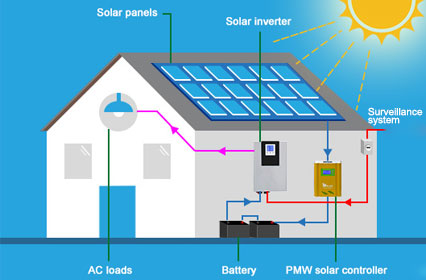Call us +234 704 100 5200
How to Turn Your House into a Smart, Energy-Efficient Home
Introduction In Nigeria’s evolving energy landscape, integrating smart technology in homes isn’t just a luxury—it’s a path to resilience, savings, and sustainability. With smart energy systems, households can better manage consumption, automate processes, and extend the benefits of solar and inverter systems.
Why Smart Homes? – Cut energy bills by up to 30% – Maximize use of stored solar energy – Automate responses to power outages – Remotely monitor and control appliances
Essential Smart Devices 1. Smart Inverters: Automatically switch between solar, battery, and grid. 2. Smart Plugs and Bulbs: Schedule and monitor usage for appliances. 3. Energy Monitors: Track usage in real-time, identify waste. 4. Thermostats and Fans: Adjust settings based on room occupancy. 5. Remote Apps: Manage systems from smartphones.

Integration Tips – Start with a basic energy audit. – Install smart meters and monitor daily usage. – Automate lighting and high-consumption devices. – Scale up gradually—add AI features for learning behaviors.
Market Growth & Trends – Nigeria’s smart home market to reach $1.61B by 2030. – Demand driven by urbanization, energy challenges, and solar adoption.
Conclusion Smart energy solutions allow Nigerian homeowners to future-proof their homes, reduce reliance on unstable grid supply, and get the most out of their solar and backup systems. With strategic investment, every home can become a smart, efficient powerhouse.

